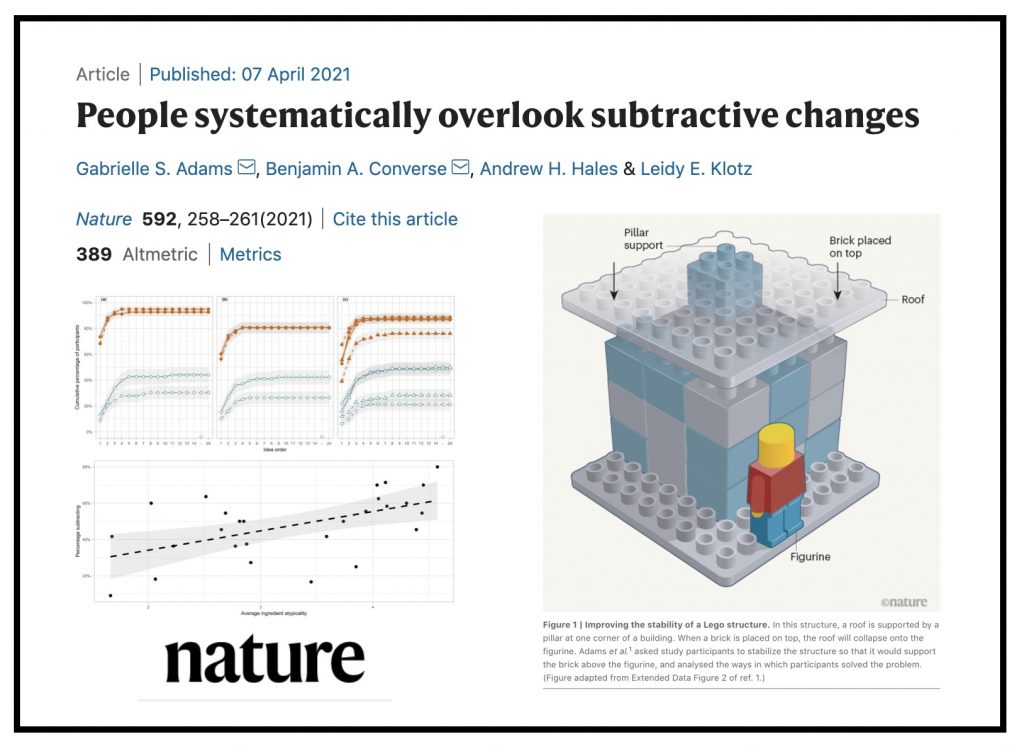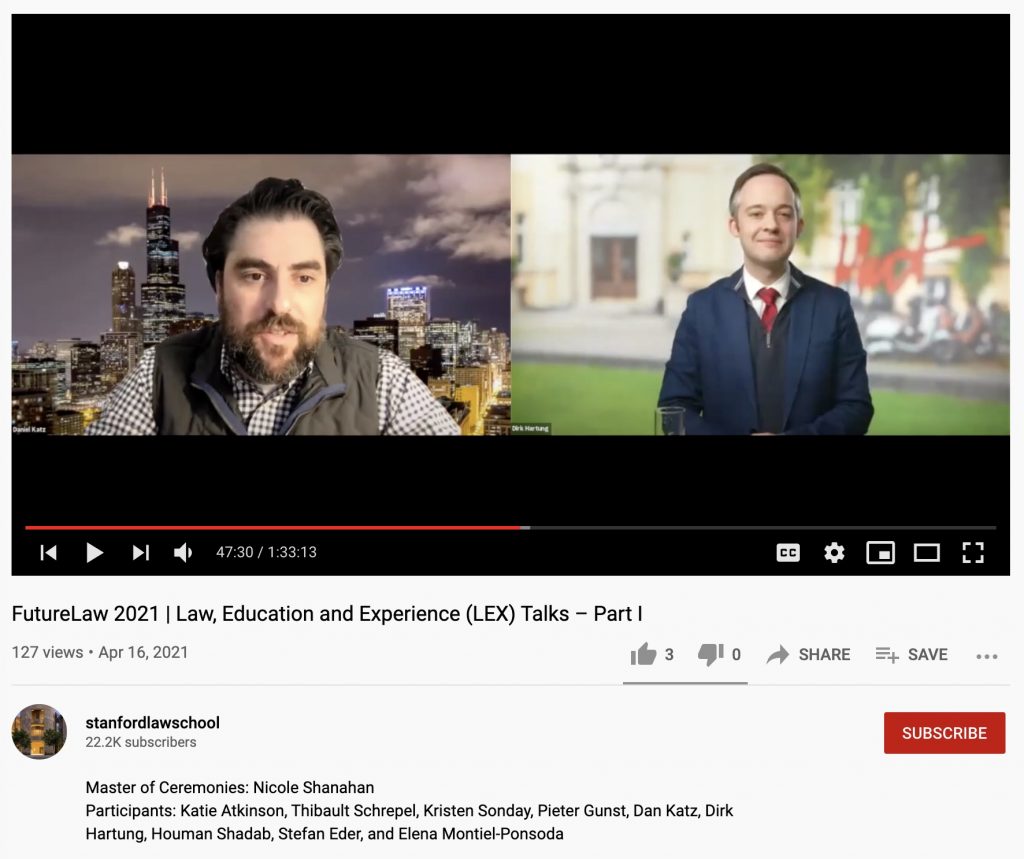Access via YouTube!
Month: April 2021
Legal Complexity – Short Talk at Stanford CodeX Future Law ONLINE Conference 2021
Yesterday we presented our work in a Short Talk at the Annual Stanford CodeX Future Law Conference — our presentation was focused on “Complex Societies and the Growth of the Law” (as well as our new paper on measuring legal systems over time, at scale).
Here are the Papers that were Briefly Presented —
Daniel Martin Katz, Corinna Coupette, Janis Beckedorf & Dirk Hartung, Complex Societies and the Growth of the Law, 10 Scientific Reports 18737 (2020) < Nature Research >
Corinna Coupette, Janis Beckedorf, Dirk Hartung, Michael Bommarito, & Daniel Martin Katz, Measuring Law Over Time: A Network Analytical Framework with an Application to Statutes and Regulations in the United States and Germany (Under Review – Frontiers in Physics) < SSRN >
Problem Solving Experiments Reveal that People are More Likely to Consider Solutions that Add Features than Solutions that Remove Them (via Nature)

Interesting paper … when individuals evaluate the space of possible solutions, they systematically overlook the solutions which involve removing parts of a system. This may explain bloat in software, regulation, organizations which fail to innovate, etc.
ABSTRACT: “Improving objects, ideas or situations—whether a designer seeks to advance technology, a writer seeks to strengthen an argument or a manager seeks to encourage desired behaviour—requires a mental search for possible changes. We investigated whether people are as likely to consider changes that subtract components from an object, idea or situation as they are to consider changes that add new components. People typically consider a limited number of promising ideas in order to manage the cognitive burden of searching through all possible ideas, but this can lead them to accept adequate solutions without considering potentially superior alternatives. Here we show that people systematically default to searching for additive transformations, and consequently overlook subtractive transformations. Across eight experiments, participants were less likely to identify advantageous subtractive changes when the task did not (versus did) cue them to consider subtraction, when they had only one opportunity (versus several) to recognize the shortcomings of an additive search strategy or when they were under a higher (versus lower) cognitive load. Defaulting to searches for additive changes may be one reason that people struggle to mitigate overburdened schedules, institutional red tape and damaging effects on the planet.”

